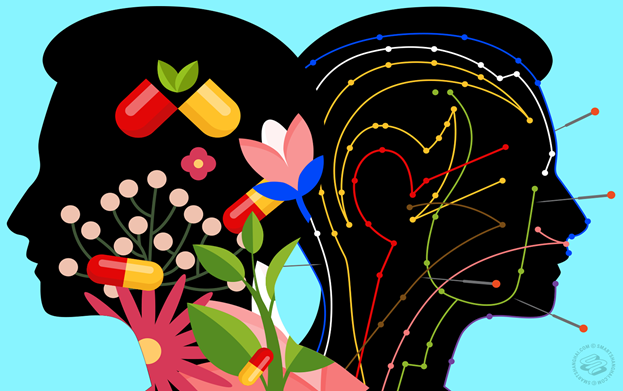In honor of the New Chinese Lunar New Year, the year of the OX, the Traditional Chinese Medicine community across Canada are coming together in the name of celebration and education in two major events. The FTCMCC is proud to join The Canadian College of Acupuncture and Traditional Chinese Medicine and The Confucius Institute at Saint Mary’s University, who will be hosting a virtual Traditional Chinese Medicine themed festival for all those interested are welcome to participate. The FTCMCC is pleased to announce that few of its Executive Board Members will be guest speakers at The 1st International Academic Conference of Acupuncture & Traditional Chinese Medicine of Canada. The topics of the conference are Chinese Medicine and Acupuncture for Mental Health and Pain Management.
Pain Management and Mental Health are current mainstream concerns that became common ailments to a large percentage of the general population. Undoubtedly, you or someone you know suffer from either pain or their mental health. Traditional Chinese Medicine treatment modalities can help patients manage their symptoms thus improving quality of life in general. In a broad perspective, Acupuncture aims to balance the Yin and Yang energies (Qi) within the body to restore balance from within. Through the lenses of TCM, pain is perceived as “blockage”, while issues regarding mental health, such as anxiety, depression, schizophrenia, and bi-polar.
In the TCM paradigm, Qi flows through channels in the body and in the spaces between muscles and the skin. Qi has many functions including warming, moistening, and nourishing; promoting normal function of the organs; providing energy for different processes; regulating the body; protecting the body; and ensuring that organs remain in their proper positions. A very important role of Qi is in maintaining balance. In this sense, it is a homeostatic mechanism by which the body can heal itself and establish a state of wellness. If Qi encounters a Yin–Yang imbalance, Qi corrects the situation by transforming one to the other, thus restoring balance and harmony. If, however, a blockage exists that impedes the flow of Qi, a factor is present that is interfering with the Qi, or if there is a Deficiency of Qi, this healing transformation does not take place. There are TCM techniques for opening blocked channels; for expelling pathogenic factors that are interfering with normal processes; and for boosting Qi in cases of Deficiency.
Read this article: Traditional Chinese Medicine as a Basis for Treating Psychiatric Disorders: A Review of Theory with Illustrative Cases




